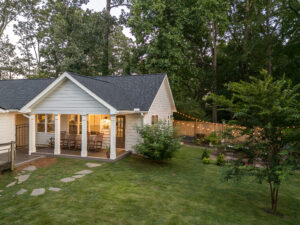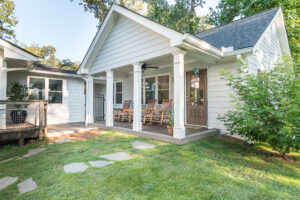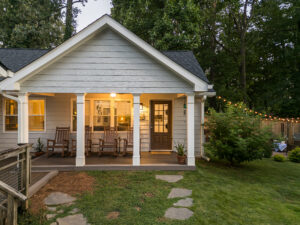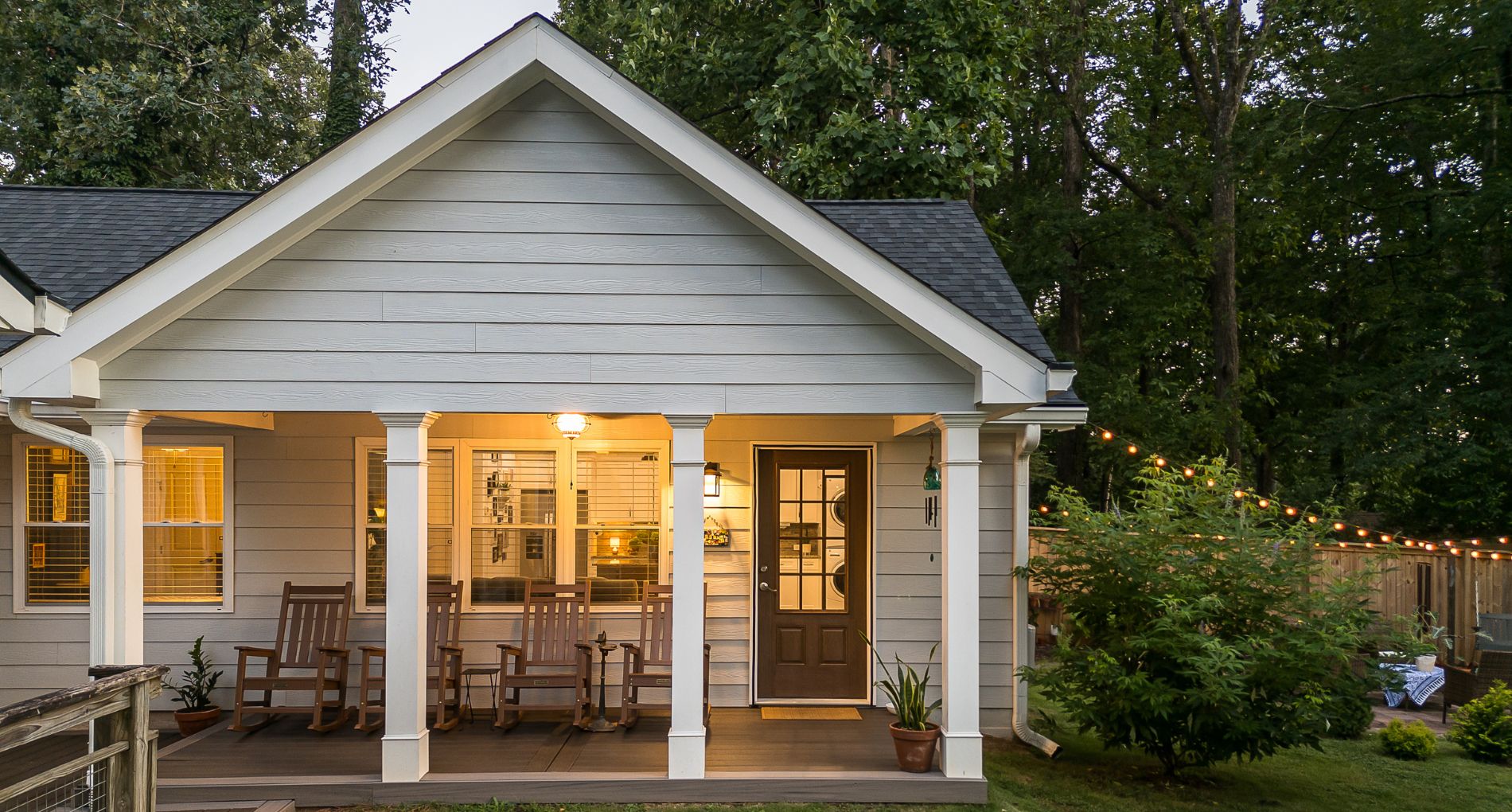Why, How and Who: Important Considerations for ADUs
With cities grappling with housing shortages, skyrocketing real estate prices and the growing call for sustainable urban development, one residential construction trend has steadily been gaining momentum. For some homeowners, building an Accessory Dwelling Unit (ADU) is an attractive option. These secondary housing units, located on the same lot as a primary residence, can provide lasting benefit and better living.
In this latest installment of our blog series on ADUs, we’ll offer some suggestions to help you decide if constructing an ADU is desirable and feasible for your property. We’ll also share some tips for managing your risk as you start planning the construction of your ADU. And finally, we’ll offer some simple guidance for partnering with the right contractor in your community—to ensure that you get the ADU (and contractor experience) you deserve.

Start With Why: Consider your Motivation
Is building an ADU the right choice for you and your family?
As we’ve explored through earlier installments of this series, motivation to build an ADU will vary from homeowner to homeowner. Rental income and property value enhancement will be strong attractors for some; while adding usable space to accommodate a growing family, self-employment and multi-generational living situations will be a primary driver for others.
1. Aging in Place: ADUs provide a perfect solution for multigenerational living. Elderly parents can stay close to their families, while maintaining their independence and avoiding the high (and rising) costs of assisted living facilities.
2. Supplemental Income: Renting out an ADU can create a steady stream of income for homeowners, helping them offset mortgage costs or save for other financial goals.
3. Affordable Housing Solutions: With housing affordability becoming a critical issue, ADUs present a cost-effective solution. They are generally less expensive to build than new, single-family homes and can offer more affordable rental options.
4. Maximizing Land Use: As urban spaces become more densely populated, ADUs enable homeowners to make better use of their existing property without requiring new land development. This is especially appealing in cities where space is at a premium.
5. Sustainability: With their smaller footprint, ADUs are often more energy-efficient than larger homes. They can also contribute to reducing urban sprawl and the environmental impact of new construction.
Does one, or more, of these motivators resonate with you? If so, building an ADU on your property could be the wise, life-enhancing solution you’ve been searching for. Before you sign any contracts or break ground, however, do yourself a favor: Take the time and effort to consult with professionals who will help you evaluate and mitigate risks associated with residential building projects.
Know How: Investigate All Angles
While constructing an ADU can yield a variety and wealth of benefits, it’s also important to acknowledge potential risks. At the very least, we recommend that you get to know your local building codes and zoning regulations before moving forward. Building an ADU is a major construction project. Not only is it important to know what you can and cannot do, you’ll also want a solid plan and accurate budget. Here are some of the most common considerations you’ll want to give attention to during the planning phase of your ADU project.
- Regulatory Hurdles: Zoning laws, permitting processes, historical preservation requirements and building codes can vary from location to location, which can complicate ADU planning, design and construction. For example, if rental income is a motivator for you, make sure that your community allows you to build and rent an ADU on your property. Also, be careful and consider the fact that the rules and regulations of your county or city may be superseded by the rules and regulations of a Homeowners Association (HOA) or Historic District designations.
- Upfront Costs: Although cheaper than building a new home, constructing an ADU can still be a significant investment. All-cash financing may not be an option. You may have to consider using equity from your home or securing a construction loan to complete the work. These are big financial decisions that require careful thought and consideration.
- Contingencies: Whatever route you take to finance your ADU project, make sure to take steps to protect that financial investment. One of the best ways to ensure that your construction project (big or small) is finished on time, on budget and to your expectations is to start with a solid plan. Adjustments, challenges and contingencies are unavoidable in residential construction, but having a plan in place can help to keep these hiccups from derailing the project or blowing up your budget. Most importantly, good planning will help ensure that you and your contractor proceed with the same roadmap and same set of expectations.

Who to Work With: Partnering with a Professional
Ultimately, the responsibility for hiring the right contractor falls on the homeowner. So, when it comes to partnering with a professional to build your ADU, consider the following suggestions. Not all contractors are equally qualified or consistent with their level of commitment to client service or quality.
- Do your homework: Read reviews and check references for contractors you are considering. Reputation within the industry, professional qualifications and client testimonials matter. Also make sure your contractor is licensed and insured (both workers’ compensation and general liability) and that any subcontractors (plumbers, electricians, etc.) hired by the contractor are likewise ensured. Any reputable contractor will gladly provide you with proof of insurance when asked. Furthermore, look for a contractor who is willing to obtain all the necessary permits and arrange for building code inspections when each phase of the project is complete.
- Get it in writing: Don’t proceed with verbal agreements. Insist on an agreement in writing. Furthermore, this contract should outline the details of the project such as scope, materials cost, labor cost, overall budget, payment schedule and project timeline at the least.
- TEAM includes ME: Lastly, hire a contractor who respects your role in the project. Work with a team of professionals who will develop a comprehensive project plan and budget with (rather than without) you, the most important person on the project team.

At Alair Homes- Marietta, we specialize in building custom homes and renovations that fit your unique lifestyle and improve how you live in your space. Whether you’re adding an ADU, or remodeling your home, we’re with you through every step—from design to construction. Our focus is on bringing your vision to life and creating a space that truly works for you.
Ready to explore the possibilities of an ADU for your Marietta home? Contact Alair Homes Marietta today to schedule a consultation and start planning your perfect backyard cottage, guest house, granny flat or ADU that works best for you and your family.
